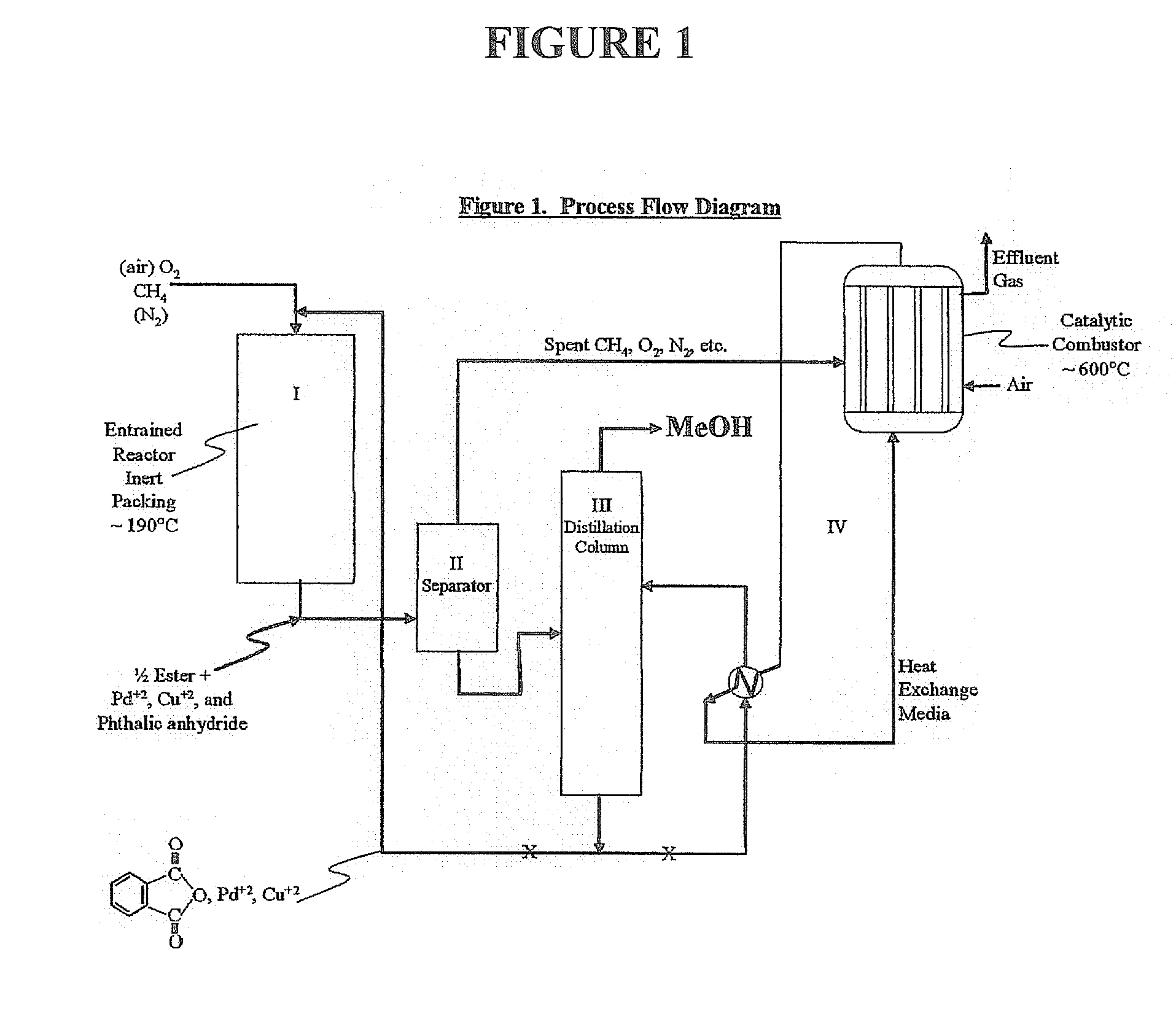Method for deriving methanol from waste generated methane and structured product formulated therefrom
a technology of waste generated methane and methanol, which is applied in the direction of oxidation reaction preparation, organic chemistry, and compound preparation, etc., can solve the problems of unsatisfactory efforts to stop, multi-step rather expensive way, and many hundreds of efforts to stop there, etc., to achieve simple cheap separation and less capitol
- Summary
- Abstract
- Description
- Claims
- Application Information
AI Technical Summary
Benefits of technology
Problems solved by technology
Method used
Image
Examples
example 1
EXAMPLE 1
[0031] Utilizing the principles described in the summary, a waste methane input stream previously depleted of CO2 and sulfur containing gases is oxidized in an entraiment reactor utilizing molten phthalic anhydride as the solvent / reactant. Air is the source of oxygen for the system with nitrogen, carbon dioxide, and its minor components present. The waste methane input stream is derived from solid waste landfill bacterial decomposition and, as stated, has had carbon dioxide, hydrogen sulfide, methyl and ethyl mercaptan removed along with traces of higher mercaptans. The stream contains an average assay of 5% nitrogen. Oxidation takes place in the presence of 2% palladium and 2% copper phthalate in the phthalic anhydride solution.
[0032] Flow rates involve about 85% molten phthalic solution and the remainder entrained and dissolved air and methane. Air quantity is such that methane to oxygen ratio is maintained at 0.3 mol oxygen / mol methane. Contact time for the total mix of...
example 2
[0039] Example 2
[0040] Essentially, the same as EXAMPLE 1, but with 3 / 4 mullite inert ceramic spheres and super heated steam used as the heat exchange medium in the catalytic combustion of effluent from methane oxidation in the phthalate system. Again, methanol is made as the product.
example 3
[0041] Example 3
[0042] Same as EXAMPLE 1, except methane is not pre-treated to remove CO2 and any sulfur-containing components. Effluent will contain trace SO2 from the catalytic combustor and the feed gas CO2 as well as CO2, H2, N2, etc., from air plus effluent at ˜600° C. Product methanol will be essentially the same as EXAMPLE 1.
PUM
| Property | Measurement | Unit |
|---|---|---|
| Fraction | aaaaa | aaaaa |
| Pressure | aaaaa | aaaaa |
| Percent by mass | aaaaa | aaaaa |
Abstract
Description
Claims
Application Information
 Login to View More
Login to View More - R&D
- Intellectual Property
- Life Sciences
- Materials
- Tech Scout
- Unparalleled Data Quality
- Higher Quality Content
- 60% Fewer Hallucinations
Browse by: Latest US Patents, China's latest patents, Technical Efficacy Thesaurus, Application Domain, Technology Topic, Popular Technical Reports.
© 2025 PatSnap. All rights reserved.Legal|Privacy policy|Modern Slavery Act Transparency Statement|Sitemap|About US| Contact US: help@patsnap.com



